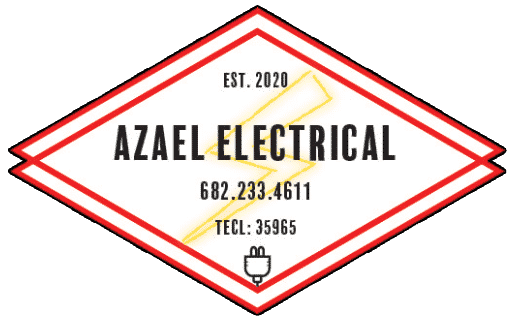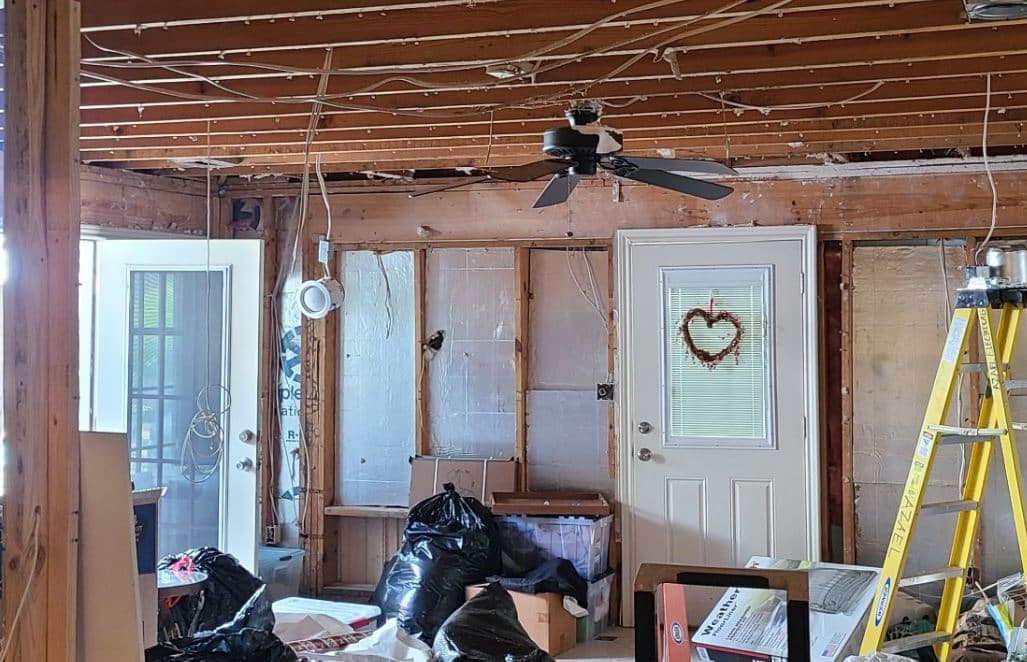Your home depends on electricity for lights, appliances, and everyday comfort. But when something goes wrong, the warning signs are not always obvious. Ignoring these signs can lead to fire hazards, power surges, damaged appliances, and higher energy bills.
This guide will help you spot the most common signs that your home may need electrical work.
1. Flickering or Dimming Lights
Flickering lights are often caused by loose wiring, old fixtures, or overloaded circuits. Sometimes the problem is just a bad bulb or switch, but frequent flickering usually points to a deeper issue.
If your lights flicker often or in multiple rooms, call a licensed electrician. Ignoring it can lead to overheating and fire hazards.
2. Electrical Shocks
Feeling a shock when you touch an appliance or switch is a warning sign. This can happen due to faulty wiring, poor grounding, or moisture near outlets.
If shocks happen often, even with different devices, you likely have a wiring or grounding problem that needs professional attention.
3. Overloaded Circuits
Signs of an overloaded circuit include:
- Breakers that trip often.
- Buzzing sounds from panels or outlets.
- Flickering lights when using appliances.
- Warm or discolored outlet plates.
Overloaded circuits raise the risk of fires. An electrician can redistribute the load or add new circuits to handle the demand.
4. Burning Smells
A burning smell from outlets or switches could mean wires are overheating. This may be caused by loose connections, overloaded systems, or worn insulation.
Turn off the power to that area right away and contact a licensed electrician. Do not ignore this warning. It could lead to an electrical fire.
5. Warm or Hot Outlets
Outlets or switches that feel warm or hot usually signal overuse, outdated wiring, or a bad connection. Heat can damage the outlet and increase the chance of fire.
Outlets should always stay cool to the touch. If they feel warm, stop using them and schedule an inspection.
6. Frequently Tripping Breakers
Breakers trip to protect your home from surges, shorts, or too much current. If a certain circuit trips often, it may be overloaded or faulty.
Over time, frequent tripping can damage devices, waste energy, and weaken the circuit. An electrician can test the load and make fixes.
7. Buzzing or Humming Noises
Buzzing may come from loose wires, bad grounding, or faulty outlets. It can also mean a part is vibrating under stress.
If the sound is constant or gets louder, shut off power to the area and call an electrician. These noises often come before a bigger failure.
8. Sparking Outlets
Sparking can result from short circuits, water exposure, or old wiring. It might happen when you plug in a device, showing the outlet is worn or damaged.
Sparking is never normal. Turn off the circuit and call a licensed electrician. The outlet or wiring may need to be replaced.
9. Dimming Appliances
Do your lights dim when you turn on another appliance? This often signals a voltage drop due to too much load on one circuit or an outdated panel.
An electrician can balance the load or upgrade your panel. This ensures even voltage and protects sensitive electronics.
10. Sudden High Energy Bills
Old appliances, inefficient wiring, and energy leaks can drive up your electric bill. Hidden electrical issues can also waste energy through heat or poor connections.
Check your usage patterns first. If bills stay high, request a professional electrical energy audit to find problems.
11. Outdated Wiring
Common signs of outdated wiring include:
- Frequent blown fuses.
- Two-prong (ungrounded) outlets.
- Discolored or loose outlets.
- Burning smells or buzzing switches.
Old wiring may not handle modern power needs and could fail when you need it most. Upgrading improves both safety and efficiency.
12. Blown Fuses
Does the same fuse keep blowing? This may happen due to circuit overloads, faulty devices, or aging wiring. When the amperage rating is exceeded, the fuse blows to prevent damage.
If replacing the fuse does not fix the issue, consult an electrician. They can find what is causing the overload and whether rewiring is needed.
Final Thoughts
Electrical issues should never be ignored. Flickering lights, frequent breaker trips, and burning smells all point to potential hazards. The longer you wait, the higher the risk of fires, property damage, or system failure.
If you notice any of these warning signs, contact a licensed electrician to check your home and make sure everything is safe and up to code.
Frequently Asked Questions
What are the most common signs of electrical problems in a house?
Frequent breaker trips, flickering lights, buzzing sounds, burning smells, hot outlets, and sparking are all common signs your home needs electrical work.
How often should a home electrical system be inspected?
Most electricians recommend a full inspection every 5 to 10 years. You should also get one after major renovations to ensure safety and code compliance.
Can outdated wiring cause high electric bills?
Yes. Old or inefficient wiring can waste electricity through resistance and heat. This often leads to higher monthly energy costs.
Is a burning smell from an outlet dangerous?
Yes. Electrical parts can smolder before they catch fire. If you smell something burning, cut the power immediately and call an electrician.

